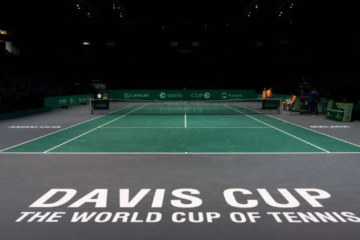Political Parties in Pakistan: Unraveling the Dynamic Landscape

Introduction
In the diverse political terrain of Pakistan, understanding the intricate dynamics of Political Parties In Pakistan is pivotal. As we delve into this comprehensive exploration, we aim to provide a nuanced perspective, shedding light on the historical evolution, ideologies, and contemporary significance of the major political entities shaping Pakistan’s destiny.
Historical Roots of Political Parties
All India Muslim League: Paving the Way for Pakistan
The genesis of political parties in Pakistan can be traced back to the pre-independence era, with the All India Muslim League playing a pivotal role. Founded in 1906, the league, led by Muhammad Ali Jinnah, played a crucial part in the creation of Pakistan in 1947. Its vision was to safeguard the rights of Muslims in a united India, culminating in the establishment of a separate nation.
Pakistan People’s Party (PPP): A Legacy of Bhutto
Fast forward to the post-independence period, and the emergence of the Pakistan People’s Party (PPP) becomes paramount. Founded by Zulfikar Ali Bhutto in 1967, the PPP has been a prominent player in Pakistani politics. With a focus on socialist ideals, the party has left an indelible mark, emphasizing empowerment and socio-economic reforms.
Pakistan Muslim League-Nawaz (PML-N): Striving for Stability
In the mosaic of Political Parties In Pakistan, the Pakistan Muslim League-Nawaz (PML-N) holds a significant position. Established in 1993, it has been a stalwart in championing conservative policies and economic stability. Led by the Sharif family, the party has been a major force in both federal and provincial governments.
Ideological Frameworks: A Comparative Analysis
Islamist Ideologies: JI and MMA
Moving beyond mainstream parties, Islamist ideologies find expression through the Jamaat-e-Islami (JI) and the Muttahida Majlis-e-Amal (MMA). Rooted in Islamic principles, these Political Parties In Pakistan advocate for a governance system aligning with religious values. Their influence is particularly prominent in certain regions, adding a layer of complexity to Pakistan’s political tapestry.
Regional Dynamics: MQM and ANP
Regional Political Parties In Pakistan like the Muttahida Qaumi Movement (MQM) and the Awami National Party (ANP) bring a distinct flavor to the political spectrum. MQM, primarily based in Karachi, has historically represented the urban population, while ANP, rooted in Khyber Pakhtunkhwa, champions the rights of Pashtuns.
Contemporary Landscape: Challenges and Opportunities
PTI: Navigating the Winds of Change
The Pakistan Tehreek-e-Insaf (PTI), founded by cricketer-turned-politician Imran Khan in 1996, has disrupted the political landscape. With an anti-corruption narrative and a focus on good governance, PTI has gained momentum, securing the federal government in 2018. However, navigating the complexities of governance presents ongoing challenges.
Balancing Act: The Current Coalition Government
As of the latest developments, a coalition government has taken the reins, showcasing the intricacies of power-sharing among diverse political entities. Balancing divergent ideologies while addressing the pressing needs of the populace is a delicate dance that defines the present political scenario.
Conclusion
In conclusion, the political parties in Pakistan encapsulate a rich tapestry of historical legacies, diverse ideologies, and contemporary challenges. From the inception of the All India Muslim League to the present-day dynamics with parties like PTI, the journey has been both tumultuous and transformative. As Pakistan continues to navigate its political course, understanding the multifaceted nature of its political parties becomes imperative.
Leave a reply
You must be logged in to post a comment.






